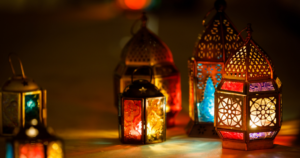Guest Blog: Top 5 Tips For Employees Observing The Fast This Ramadan


As the Ramadan season approaches, International SOS provides guidance for employees observing the holy month and shares advice for travelers on navigating the cultural sensitivities during the period. Ramadan began on 22 March and until 21 April, will see Muslims around the world observing daytime fasting for a period of 30 days. Observers will abstain from meals and drinks while spending a large portion of their time in prayers. The fast begins with a light meal known as ‘Suhoor’, consumed at dawn before Imsak time, and ends at sunset when they break the fast with an evening meal of Iftar. Daylight hours during Ramadan this year will average around 16 hours in London, 14 hours in Dubai, and 12 hours in Kuala Lumpur.
The end of Ramadan will be marked with a celebration of Eid al-Fitr when Muslims typically attend their local mosque for Eid prayer and host great feasts with their family and friends throughout the day.
International SOS’ top five tips for employees observing the fast this Ramadan are:
Do not skimp on rest and/or sleep– Ramadan is a time of increased prayer. Though it may be tempting to stay up late for Suhoor and only sleep after Imsak, you should still aim to get at least eight hours of sleep daily even if this is accumulated over several separate periods of rest. A well-rested body and mind will make it easier for you to concentrate at work and have more energy throughout the day.
Stagger your hydration– Thirst can be one of the most challenging symptoms of fasting, leading us to drink plenty of water and liquids very fast as soon as we break our fast and then just before Imsak. However, rehydration should be a cumulative process. The best way to rehydrate fasting bodies and maintain this hydration for longer is to pace your liquid intake by consuming at least two liters of water – one or two glasses at a time – between Iftar and Imsak. It also helps to cut down on caffeinated drinks at night and to top up your liquid intake with soups, fruits, and vegetables rich in water, such as cucumbers and watermelon.
Eat healthy and nutritious meals– Fasting will cause a change of habit in eating and your food intake frequency. It is vital to fulfill your vitamin and mineral needs and to be mindful of your salt and sugar intake. After a full day of fasting, avoid satisfying cravings with soda and energy drinks that are high in sugar. Instead, opt for unprocessed food such as fruits, and consume complex carbohydrates such as rice, bread, and wholegrains alongside vegetables, which will keep you fuller for longer. As for salt intake, it is worth keeping in mind that having moderately savory foods with water can help you retain some hydration for longer. However, consuming too much salt can affect blood pressure and contribute to thirst and dehydration during the day.
Do more in the morning– Where possible, schedule more difficult tasks requiring greater concentration or physical effort in the morning. Schedule important meetings during the first half of the day, when your energy levels will be higher and you are better able to retain new information.
Don’t stop exercising– Although you may feel more tired and, understandably, less active while fasting, skipping regular exercise for a full month is unhealthy, particularly as most of your food intake will be consumed at night. Moderate exercise is advisable and will also help you feel less sluggish. Just remember to wait a couple of hours after Iftar before doing an activity.
For more details, visit: https://www.internationalsos.com/
